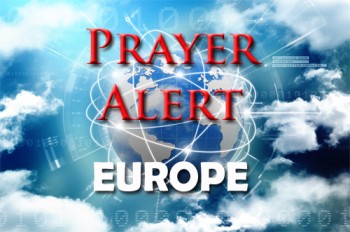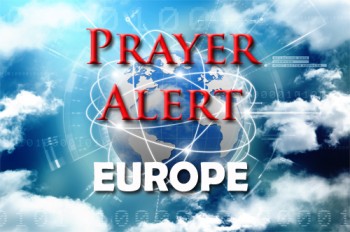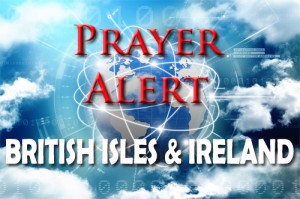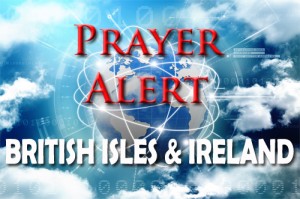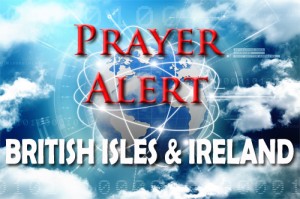Displaying items by tag: Ireland
People here live in both countries
Young people in Northern Ireland have grown up with a unique ability to identity as British, Irish, or both, thanks to the peace agreement that ended decades of conflict. But after Brexit, some people think the border between Northern Ireland and the Republic of Ireland could again become a scene of violence, and there is uncertainty about what rights Irish and British passport holders will have. Pray for the questions around people’s identities and citizenships to be resolved. Pray for peace to cover all areas threatened with fear and violence. To watch a short documentary about the north/south divide issues discussed by young people, click the ‘More’ button.
EU / Ireland: further Brexit talks planned
On 7 February, following a ‘robust but constructive’ meeting between Jean-Claude Juncker and Theresa May, who was seeking changes to her Brexit deal, Mr Juncker stressed that the withdrawal agreement would not be redrawn, but he held open the possibility of adding ‘more ambitious’ wording to set out plans for the future relationship. Despite the challenges, the two leaders agreed that their teams should hold talks as to whether a way through can be found that would gain the broadest possible support in the UK parliament and respect the guidelines agreed by the European Council.
Irish church leaders pray together for Brexit
Representatives from the Roman Catholics, Methodists, Presbyterians, and the Church of Ireland met in Belfast on 22 November to discuss the Brexit challenges and pray. In a joint statement, they said that relations between people in the Republic of Ireland and Northern Ireland, and between the Republic and the UK, had 'improved and deepened over the past thirty years’, and that the message of Jesus to 'love your neighbour' was guiding their response to Brexit. They added. 'We pray at this time that the tensions which the Brexit negotiations entail will not be allowed to undermine the good relationships and mutual understanding which are so important for us to work together for the common good.' They pleaded with people in positions of leadership to ‘keep the debate around Brexit civil, to speak with grace, and to weigh their words carefully’.
Ireland votes to eject blasphemy law
Campaigners in Ireland celebrated the end of a ‘medieval’ ban on blasphemy after voters backed removing the offence from the constitution in a referendum. The decision is the latest in a ‘quiet revolution’ of seismic social and political changes in the country. Until recently, Ireland was conservative and dominated by the Catholic Church. Recently Ireland has legalised gay marriage and abortion in popular votes, and is now led by an openly gay Taoiseach. Reflecting the speed of changes, four in five voters under 35 backed the change, while over-65s only approved it by a narrow margin.
Ireland: proposed boycott of Israel goods
The Irish Senate has voted to approve a proposal to criminalise doing business with Jews in settlement areas, parts of Jerusalem and the Golan Heights - areas that came under Israel’s control after the 1967 Six-Day War. After the vote the Irish ambassador was summoned to a meeting at the Israeli foreign ministry’s office. If Eire officially approves the proposal, it will become the first country in the European Union to criminalise import of goods from Israel. The proposal’s initiator, Senator Frances Black, slammed Israeli settlements as ‘war crimes’ and compared her initiative to Ireland’s anti-apartheid actions against South Africa. Ireland’s government strongly opposes the initiative, which creates trade restrictions contrary to EU values and undermines Ireland’s influence in the region. EU law states that its members can only mark products coming from settlements - not boycott or impose sanctions on their imports.
Catholic hospitals must carry out abortions
Irish hospitals with a Catholic ethos will be expected to carry out abortions when the country’s new laws on terminations come into effect, the Taoiseach has made clear. Leo Varadkar said that while individual doctors, nurses or midwives could opt out of performing procedures on conscience grounds, entire institutions will not have that option. He was addressing concerns about surgical abortions. The government is drafting legislation to allow any woman to request an abortion up to 12 weeks, subject to a cooling-off period, and to allow abortion in extreme cases between 12 and 24 weeks. This was after citizens voted two-to-one in a referendum to repeal the state’s constitutional ban on abortions. The Taoiseach said the legislation would follow the model of the Protection of Life During Pregnancy Act 2013, which allowed for terminations in extreme medical circumstances and for individual medics to opt out.
Abortion in UK and Ireland
The Taoiseach’s comments in February when the 8th amendment referendum announcement was made were that abortions should be ‘safe, legal and rare’. In the United Kingdom abortion is not rare. The abortion law currently being proposed by Ireland's government goes even further than the already very permissive UK law. The British law allows one in every five pregnancies to end in abortion each year. An article written by the Iona Institute sets out exactly how what is on offer in Ireland is more permissive than the British law. To read the article click the ‘More’ button. The most recent statistics on abortions carried out in England and Wales are for 2016; when there were 190,406 carried out for residents and 4,810 for non-residents.
Ireland: government calls Catholic schools discriminatory
Ireland’s constitution protects the right to a religious education and for parents to ‘provide, according to their means, for the religious and moral, intellectual, physical and social education of their children’. A new proposal preventing Catholic schools from prioritising Catholic students is being called discriminatory, as it does not apply to schools of other faiths. The Church runs 90% of state schools. When a school is full, it prioritises Catholic students when deciding how high they are on the waiting list. The education minister wants to end giving preference to Catholic children who live some distance away over non-Catholic children living close to the school. The changes would not apply to non-Catholic faith schools. Faith in Our Schools is fighting the proposal, saying the policy ‘openly discriminates against the conscience and educational rights of Catholic parents and the autonomy, and associational rights of Catholic faith schools.’
Ireland: Pope’s visit
It has been confirmed that 81-year-old Pope Francis will visit Dublin on Saturday 25 August to take part in the Festival of Families, a faith-based cultural concert in Croke Park, and celebrate Mass in Phoenix Park the following day. Bearing in mind the current contemporary challenges that face families in both Ireland and elsewhere, the Catholic bishops said, ‘We are deeply honoured that Pope Francis will come to our country to participate in this universal church celebration of faith and joy’, adding that they look forward to hearing apostolic guidance.
Brexit: EU and UK plans for NI
Theresa May’s post-Brexit plans for Northern Ireland to be under the same rules and regulations as the rest of the UK and to leave the EU customs union were challenged in the EU’s 120-page draft withdrawal agreement that includes Northern Ireland in a future customs union. The draft requires checks on goods coming in from the UK; in order for this to happen, single market legislation will also apply. The EU plan would create a border through the Irish Sea, which the UK will not accept. Michel Barnier challenged May to offer something different. The DUP is propping up the UK Government; some believe one wrong decision could see their support withdrawn. Boris Johnson said that the Northern Ireland border row is being used to frustrate Brexit, and there were ‘very good solutions’ to avoid the need for a hard border. Pray for the UK’s future to be directed by God’s Spirit, prompting MPs in all decisions they make.
